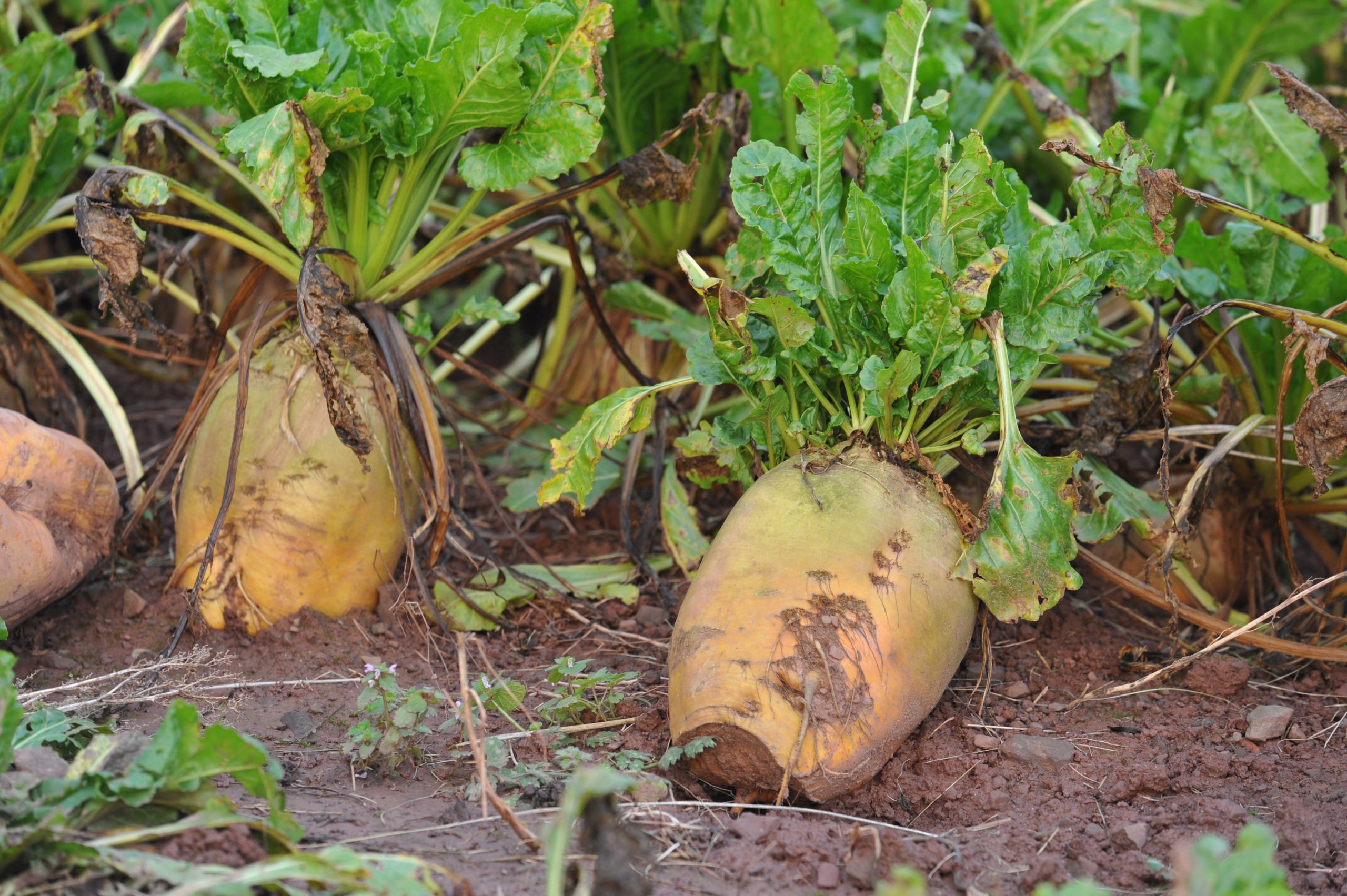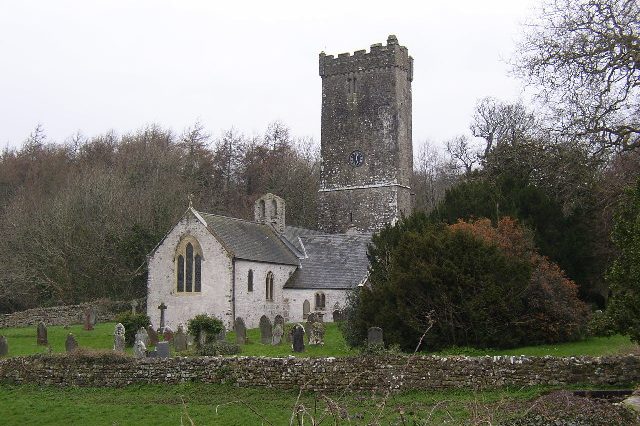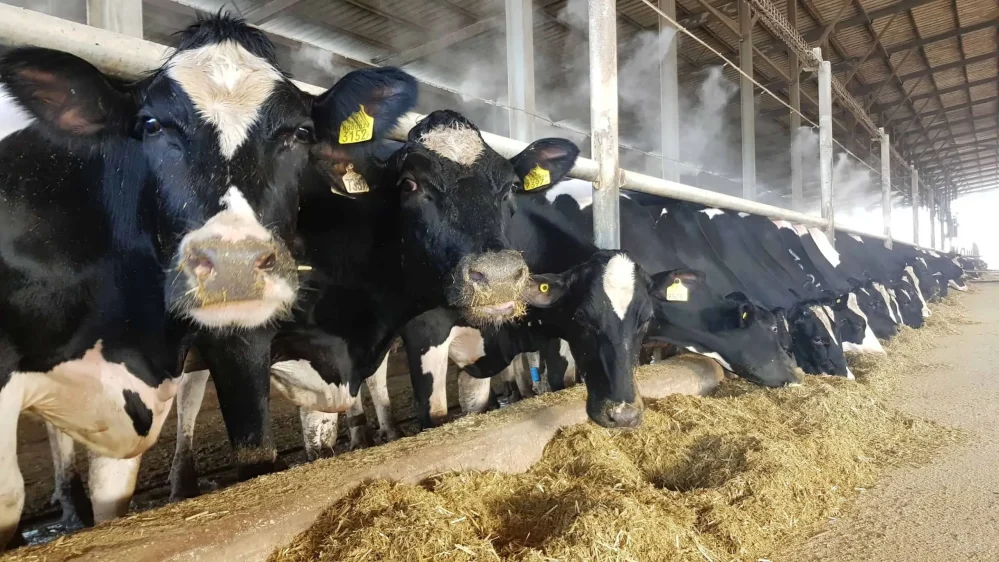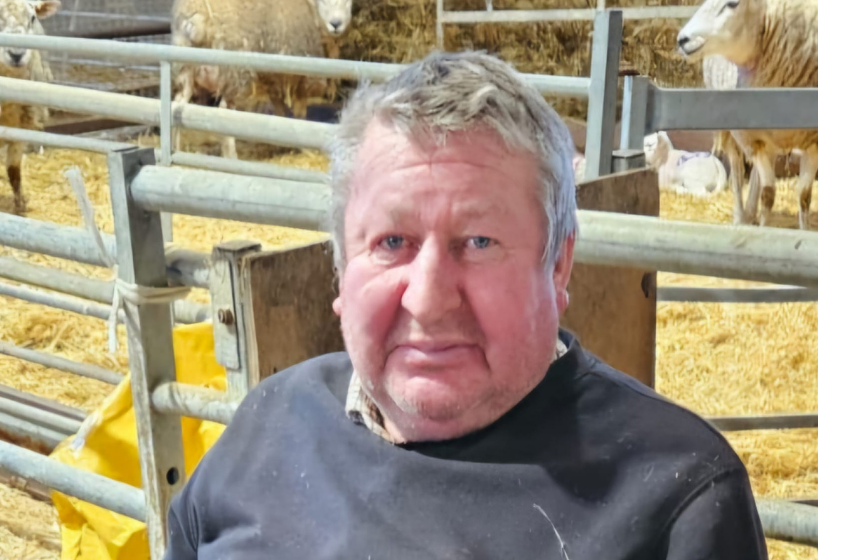Farming
Dairy farm switches to grazing fodder beet as high-quality winter feed

GRAZING fodder beet as a winter crop for beef and dairy cattle is reducing wintering costs at a Pembrokeshire farm.
The James family currently grow 10 hectares (ha) for wintering dairy beef stores produced by their dairy herd at Stackpole Home Farm, but are scaling that up to 45ha to provide feed for lactating and dry cows.
Cows are currently wintered on deferred grazing or kale with baled silage but switching to fodder beet will provide a cheaper, higher quality source of feed.
During a recent Farming Connect open day, George James, who farms with his parents, Chris and Debbie, said growing kale was getting trickier because of periods of prolonged drought following drilling in late May or early June.
“The earlier drilling dates for fodder beet give it an advantage, and we can comfortably get 20 tonne dry matter (tDM)/ha from it so it is by far the highest yielding winter grazing crop,’’ he said.
At around seven pence per kilogramme of DM, it works out at around half the cost of silage therefore the new system will reduce winter feed costs, plug feed gaps in late and early lactation, and capitalise on the farm’s free-draining sandy soils.
But transitioning the herd onto the crop and correctly allocating it will be crucial to animal health and performance.
During the open day, fodder beet expert Dr Jim Gibbs, a veterinarian and research scientist in ruminant nutrition at Lincoln University, New Zealand, and Marc Jones, an independent grass and forage consultant, shared important advice on how to get that right – and how to avoid some of the common pitfalls.
Fodder beet has a high sugar and water content so sufficient time must be given for feed intakes to adjust.
Dr Gibbs warned that dairy cows are the livestock class most susceptible to transition acidosis due to gorging, a situation which occurs if too much fodder beet is allocated too early in the transition process.
To prevent this, he advised feeding low amounts of fodder beet initially, building up intakes slowly, and providing supplementary feed to keep the cow’s rumen fully fed.
Feeding grass or silage as the supplement initially is advisable as if less palatable feed like straw is offered, cattle won’t eat the quantities they need to maintain condition and performance.
A marker for whether cattle have properly transitioned is if they are leaving beet behind – Dr Gibbs suggested this should be around 5-10% a day.
“There is no risk of acidosis after full transition providing intakes are adequate,’’ he pointed out.
A lactating cow needs 15-18kg DM in total therefore 5-6kg DM of fodder beet plus grass or silage should be the target for lactation feeding as the crop should not make up more than a third of their feed.
“Start by offering them 1kg DM/day and, once all the animals are eating the bulb, move up 1kg DM/day every two days,’’ said Dr Gibbs.
He recommended transitioning until target intakes are met.
For dry stock weighing 500kg and for in-calf heifers, the daily feed requirement is 14kg DM – as fodder beet can make up 80% of their diet, they can be allocated 11-12kg DM of fodder beet and 2kg DM roughage once they have transitioned.
Build them up to this in stages, 1-2kg DM at day one, increasing 1kg DM every other day, with 7-8kg of supplement until day seven, gradually dropping supplement to 2kg at 14 days when they have fully transitioned.
If feeding 2kg of supplement, careful consideration needs to be given as to how the supplement will be fed to enable all animals to access it; if feeding bales in ring feeders, increasing to 3-4kg is needed due to the restricted feed space.
For youngstock aged from six months, Dr Gibbs recommended starting with a daily intake of 0.5 kg DM a head of fodder beet, increasing this by 0.5kg every other day, fed with 3-5kg of grass or silage. At day 14 that mix should be 5-6kg of fodder beet and 1-2kg of grass or silage.
Marc Jones, who shared details of how he operates his system of growing and feeding fodder beet on his farm at Trefnant Hall, Berriew, said matching fodder beet varieties to class of stock is important.
He said Lactimo and Geronimo are excellent grazing varieties because they have a high proportion of leaf and more of the bulb sits out of the ground, which allows for a high level of utilisation.
A lower DM variety such as Brigadier is more palatable and will achieve better utilisation in smaller calves weighing around 200kg, he added.
Delana Davies, Cross Sector Manager at Farming Connect, who facilitated the event, said growing fodder beet provides real opportunities for reducing winter feeding costs in all classes of stock.
“Added to this there are savings to be made on housing and straw requirements plus reduced slurry and manure production and spreading issues, making growing the crop a worthwhile consideration for many dairy, beef and sheep farmers,’’ she said.
Farming
Farm building scheme near Lawrenny given go-ahead by planners

AN APPLICATION for a storage building at a south Pembrokeshire farm, made by a family member of an officer on Pembrokeshire County Council’s planning service, has been given the go-ahead by the authority’s planning committee.
In an application recommended for approval at the July 23 meeting of the authority’s planning committee, Laura Elliot sought permission for the erection of an agricultural storage building at Tedion Farm, a dairy farm near Lawrenny.
The application had been brought to committee, rather than being delegated to planning officers, due to the family connection.
The farm, near to the Pembrokeshire coast National Park border, comprises 270 milking cows and dairy heifer replacements kept on the farm comprising land over 138 hectares. The farm is mainly down to grass and the cows are paddock grazed in order to utilise grass efficiency.
No objections had been received from local community council Martletwy.
A report for members said: “The application seeks consent for the erection of agricultural storage building. The erection of an agricultural building will be used to store stay, hay and farm machinery.
“The building would be located within the existing farm complex, to the north-east of the site, adjacent to the main farm dwelling. The building will measure 18 metres in length by 13.6 metres in width, with a pitched roof height of 5.71 metres.”
Approval was moved by Cllr Alistair Cameron, seconded by Cllr Brian Hall.
Farming
Fears dairy farm near Kilgetty could increase to 3,000 cattle

PEMBROKESHIRE planners are to visit the site of one of the county’s largest dairy farms after claims were raised a scheme for new calf buildings could lead to animal welfare issues and an increase in the size of the herd to 3,000 cattle.
At the July 23 meeting of the council’s planning committee, an application by Hugh James of Langdon Mill Farms Ltd for a calf building, weaned calf building, and associated yard areas, at Langdon Mill Farm, near Jeffreyston, Kilgetty was recommended for conditional approval.
Local community council Jeffreyston has raised concerns, made by a member of the public, on potential increased noise and odour from the scheme, planners heard.
A supporting statement, through agent Reading Agricultural Consultants, said: “The holding currently has a milking herd of approximately 2,000 cows, which are housed indoors for the majority of the year, with dry cows [cows that are not lactating, prior to calving] and heifers grazed outdoors when weather and soil conditions permit.
“There has been significant investment in buildings and infrastructure at the farm over the last decade in respect of cattle accommodation, slurry storage, milking facilities, Anaerobic Digestion (AD) plant and feed storage. The unit is efficient, achieving yields of more than 10,000 litres/cow/year, with cows being milked three times/day in the 60-point rotary parlour.”
Currently, calves are reared at Langdon Mill Farm for two months before being transported off-site to be reared at a number of third-party farms in the area before being return later; the proposed 61.2m long calf building is required to accommodate young-stock, following separation from the cows, to two-months, with the 164.8m weaned calf building to be used for calves from two months to seven months.
The application says the proposals would “clearly make the enterprise more financially robust by reducing reliance on third party farms”.
However, concerns were raised at the committee meeting by objector Ian Dennis, a former vet of some four decades’ experience, who described Langdon as occupying 3,000 acres of land with 2,000 cattle currently that “are never allowed to graze,” the proposal, he said, would add another 1,000 cattle to the site.
“This is factory farming, an intensive livestock unit, no longer a farm.”
He told planners a “mendacious and incorrect” ammonia emission report submitted by the applicants was “designed to bamboozle,” saying, despite his experience and scientific background, he needed expert support to assess.
He said only average figures were reported, rather than peaks and troughs, adding the “fictitious anaerobic digestion plant” had yet to be built, with planning permission now lapsed.
However, officers told members the applicant’s agent had said works on the digestor had actually started.
On the issue of animal welfare, Mr Dennis said he had “very huge concerns” about the scale of the development, differing from a planning officer report saying the scheme would bring animal welfare benefits.
A suggestion by committee chair Cllr Simon Hancock the application be deferred pending a site visit was unanimously backed by committee members present.
Farming
Family pay tribute to farmer, 65, who died in quadbike accident

A WEST WALES farmer has died after an incident involving a quadbike.
Dyfed-Powys Police have confirmed they attended a report of an incident involving an agricultural quadbike in a field in the Llanilar area of Aberystwyth on July 17.
The force has confirmed that a 65-year-old man died at the scene.
They said that his next of kin have been advised and are being supported by specialist officers. The HM Coroner and Health and Safety Executives have been informed.
His family have paid tribute to him. The family said: “Hugh Tudor was a 65 year old farmer who had farmed at Tynberllan, Llanilar with his wife Ann for over 40 years. He was a devoted father to Sara, Lowri and the late Gwenno.
“Hugh was the son of the late Tom and Sybil Tudor of Glanystwyth and brother to Richard.
“Farming was his life, but he also had a wide range of interests and was actively involved in all aspects of the local community in Llanilar and beyond.
“We would like to thank everybody for their support and kindness during this difficult time.”
-

 Education5 days ago
Education5 days agoMilford Tesco worker achieves Oxford dream and lands top legal job
-

 Crime4 days ago
Crime4 days agoHaverfordwest man admits having nearly 1000 child and animal images
-

 Crime4 days ago
Crime4 days agoYouth set to appear in court over serious sexual offences
-

 Crime4 days ago
Crime4 days agoPolice investigating after man injured during altercation in cemetery
-

 Education4 days ago
Education4 days agoPupils delight in ice cream treat from Pembrokeshire’s number one van
-

 Crime4 days ago
Crime4 days agoTown centre ‘stinking of skunk’ as police strip cannabis farm
-

 Crime3 days ago
Crime3 days agoFag-butt police court summonses spark debate in Pembrokeshire
-

 News6 days ago
News6 days agoProposal to give firefighters a council tax discount to go to Cabinet





























